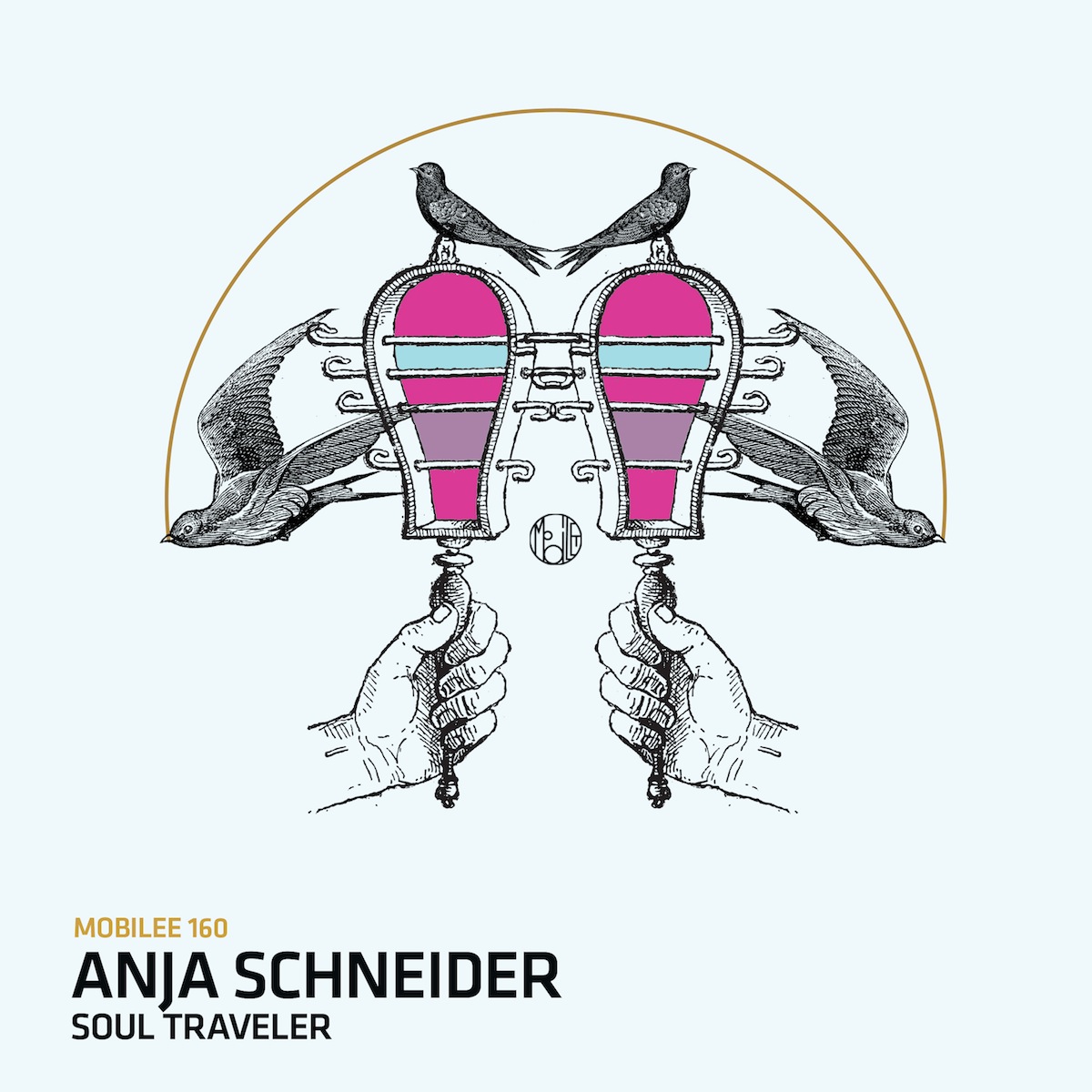Anja Schneider Soul Traveler EP
The Mobilee label's leader offers a warm and rich threesome of sophisticated club cuts.

Last year, Berlin’s Anja Schneider celebrated the tenth anniversary of Mobilee, the label she founded with partner Ralf Kollmann; XLR8R helped to mark that milestone with a Schneider podcast, which became one of our most-listened to mixes of the year. She’s been in the house-music biz for even longer: Starting her career in the final days of the last millennium as a radio producer, then an on-air jock, next a club DJ, and finally, as a creator of electronically-oriented four-to-the-floor material (as well as Mobilee’s co-ringleader), she’s been one of the modern dance-music era’s leading figures for a clubbing lifetime. Despite all that, Schneider rarely seems to get as large a share of the spotlight as many of her contemporaries—that’s probably because she’s always been more about getting the job done than she is about glittery flash.
But it would be a mistake to take Schneider for granted; her discography is as rock-solid as they come. Her reign of excellence continues with the release of the Soul Traveler three-tracker, which hits the mark from start to finish. The title cut borrows its sample-vocal riff (“the music is different here, the vibrations are different, not like Planet Earth”) from outer-limits jazz man Sun Ra, who intoned those words in the early-’70s Afrofuturist film Space is the Place. It’s not the first time those lines have been sampled—check Madvillain‘s “Shadows of Tomorrow,” for instance—but it’s a great quote and is always welcome. “Soul Traveler” might not quite live up to the promise of that quote—Sun Ra was basically from another dimension, after all, while Schneider’s from the slightly less exotic Berlin—but with a driving, techy groove that doesn’t quit, with its insistent tom-toms, hand claps and hi-hats supplying the propulsion, it would sound great late at night in a dark and dirty warehouse. It’s reminiscent of prime-time Objektivity, really.
“Bay Side,” meanwhile, switches things up, its chunkier beat boasting an near-schaffel feel and its melody imbued with an introspective emotional heft. Finally, there’s “Vintage,” a beautiful cut that approximates the dynamic feel of “Soul Traveler”—it’s a considerably deeper, moodier-feeling take on the template, with plaintive synths meandering atop the subtly tribal rhythm. All three cuts sound great, imbued with both crisp clarity and rich warmth.” To me, it was really just always about house music,” Schneider said in an 2010 interview. “If it’s not grooving, it makes absolutely no sense.” Soul Traveler more than makes sense—it might be her best release of the past several years.

